- Senator Shehu Sani reveals that each Nigerian senator takes home N21m every month as running cost
- Outrage, anger trail the revelation against the backdrop of dwindling economy
- Revenue Mobilization and Fiscal Commission, RMFAC issues statement clarifying the situation
For some months now, following the declining economy and high cost of living in the country, there has been renewed call for down ward review of salaries, allowances and benefits of National Assembly members.
However, this was fuelled by the revelation of senator representing the Kano South Senatorial District, Sen. Suleiman Abdurrahaman popularly known as Kawu Sumaila.
According to Sen. Kawu last Tuesday, “my monthly salary is less than N1million. After deductions, the figure comes down to a little over N600,000,” Senator Sumaila said, adding that: “Given the increase effected, in the Senate, each Senator gets N21million every month as running cost.”
Like Sen. Kawu like Sen. Sani
Recall that sometime in 2018, the Senator Representing Kaduna Central in the 8th senate.
Sen. Sani said that the running cost does not include a N700,000 monthly consolidated salary and allowances which they also receive.
In an interview he granted to newsmen, he then said that “I think what we can say is that the running cost of a senator is N13.5 million every month,” the senator said.
He explained that though there is no specification on what the funds was meant for, each lawmaker is mandated to provide receipts to back up their expenses.
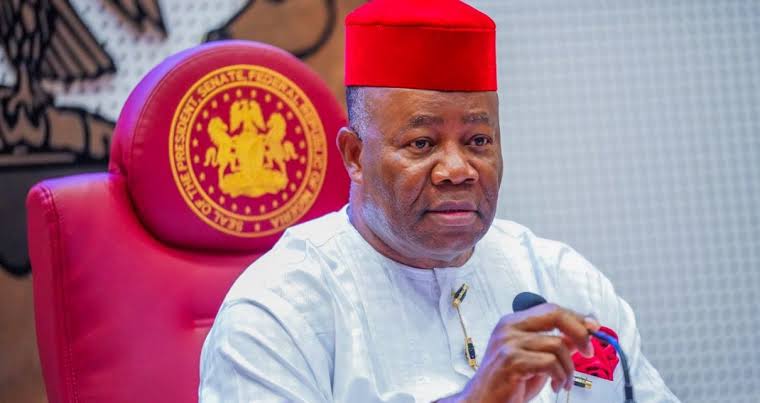
Mr. Sani explains, “But what I am saying is that that money (N13.5 million per month) must be receipted for what you do with it. But what you are given to go and spend without any accountability is N750,000.”
Speaking on the controversial constituency projects, the lawmaker said that “the constituency project itself is given on a zonal basis and almost every senator will go with a constituency fund of about N200 million, but it is not the cash that is given to you.
“You will be told that you have N200 million with an agency of government for which you will now submit projects equivalent to that amount. And it is that agency of government that will go and do those projects for you.”
Sen. Sani said the process of executing the projects was fraught with fraud.
“Now, the corruption comes when the projects are not done and the money is taken. But right now, it is difficult to do that because NGOs and transparency groups have come into it. They track every allocation made to you and where they are being used.
“So, it’s becoming difficult for what used to happen in the past to happen now.
“But I can tell you that I would love a situation where we do away with running costs, constituency projects and leaves senators and members of House of Reps with salaries.”
The senator stated that members of the National Assembly ideally shouldn’t be involved in constituency projects. He had earlier favoured this position while speaking at the launch of fact-checking and constituency projects tracking websites organised by some journalists.
“There are issues that we need to understand. First, I don’t believe that members of the National or even state assemblies should be involved in carrying out what is called constituency projects,” he said in the interview.
“When people are elected into the National Assembly, they should just be involved in law making, raising motions, bills and also performing oversight functions. But we live in a society where people cannot differentiate between the legislators and the executive.
“When the people come to you, they want you to build roads, dig boreholes, build hospitals, schools, give money, pay school fees for them. Now, if we have a society in which people will stop asking legislators to do those things, then there is no need (for the allowances) But funny enough, if you are very active in the National Assembly in making laws and you don’t embark on projects in your constituency, you cannot in any way be appreciated by the people you are there to serve because the electorates in United States are different from the electorates in the United States and Africa.”
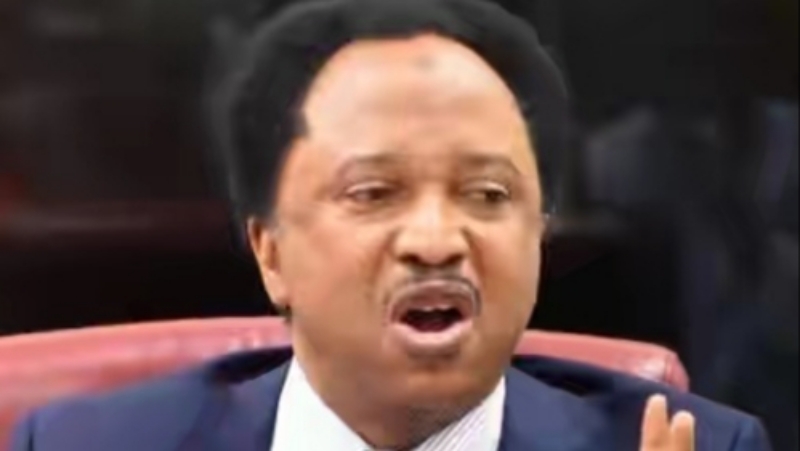
Mr. Sani’s revelation is the first by a lawmaker from the Senate since the clamour by Nigerians for transparency of lawmaker’s earnings. His revelation also puts a doubt to the National Assembly budget for 2017 released last year after public pressure. That budget had no subhead for office running cost, indicating the funds are hidden under a separate subhead.
In any case, in a country with over two hundred million where over 54% is living in abject poverty, the outrageous salary and allowances once again calls for concern.
PricewaterhouseCoopers International Limited, PWC report on 2024 Nigeria poverty rate
According to PwC Nigeria, the foremost professional services firm, recently released its Nigeria Economic Outlook report for 2024, projecting poverty levels to increase to 38.8% in 2024.
However, the firm’s forecast shows a marginal decline in inflation and 3.1 per cent rise in Gross Domestic Product (GDP).
The GDP projection by PwC is lower than the 3.4 which the Nigeria Economic Summit Group (NESG) projected a day before.
The report also points to a gloomy 2024 with rising poverty levels and the lingering cost of living crisis in the country.
It stated that achieving sustainable growth in 2024 “requires balancing ambitious fiscal reforms with effective budget implementation” while highlighting the importance of “aligning fiscal and monetary policy to stabilise prices and reach target goals.”
In the report, PwC highlighted seven key trends that will shape the economic outlook including executing fiscal reforms: balancing ambition with budgetary implementation; evolving monetary policy stance: and finding the right framework and instruments to achieve price stability, among others.
PwC also examined the proposed infrastructure funding which it said would remain insufficient in 2024.
“The allocated infrastructure spending budget for 2024 is N1.32 trillion, falling short of both the World Bank’s suggested 70% infrastructure-to-GDP benchmark (currently at 30%) and the yearly $150 billion requirement specified in the National Integrated Infrastructure Master Plan for 2021- 2025.
“Security spending in the past nine years amounted to N14.8 trillion. Despite increased spending, insecurity remains a challenge and jeopardises national stability; negatively affects economic activities and undermines investor confidence.”
On revenue, it stated that “Nigeria’s ambitious revenue targets for 2024 depend heavily on oil prices and reform implementation. Historically, actual revenue realised has averaged less than 70% of the total budget.
“Achieving budgeted oil revenue in 2024 will depend on OPEC oil production quota, international oil prices, improved security in the oil-producing regions and geopolitical factors.
“The proposed fiscal reforms have the potential to boost non-oil revenue and shape the economy, but success hinges on effective budgeting and execution.”
On the cost of living crisis, the report noted that consumer spending may be pressured in 2024 “due to rising prices of goods and services (increasing food and transportation costs), coupled with lower disposable income.”
“However, private consumption is expected to be marginally better than in 2023. Poverty levels are projected to increase to 38.8% in 2024.
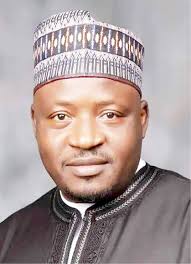
“Despite the low unemployment rate in the country, low consumer spending and purchasing power remain an issue, especially in the absence of a commensurate increase in the minimum wage to mitigate the inflationary growth in the economy,” the report added.
Reactions trail Sen. Kawu revelation
Once again, following the latest revelation by Sen. Kawu, there has been myriad of reactions.
Reacting to the development, The Socio-Economic Rights and Accountability Project (SERAP) has demanded for the disclosure of the actual salaries of the Senators in Nigeria.
In a statement on Saturday, Kolawole Oluwadare, SERAP’s deputy director, asked the leadership of the national assembly to “promptly disclose the exact amount of the monthly running costs of millions of naira currently being paid to and received by members of the national assembly and the spending details of any such running costs”.
He said the alleged practice of paying money meant for “running costs” to the personal accounts of lawmakers amounts to corruption, which should be investigated.
“The allegations that members of the national assembly are fixing their own salaries, allowances and running costs are entirely inconsistent and incompatible with the constitutional oath of office and the object and purpose of the UN convention against corruption to which Nigeria is a state party,” the statement reads.
“We would be grateful if the recommended measures are taken within seven days of the receipt and/or publication of this letter.
“If we have not heard from you by then, SERAP shall take all appropriate legal actions to compel you and other members of the national assembly to comply with our request in the public interest.
“Accounting for and returning any misused or mismanaged running costs collected by members of the national assembly would build trust in democratic institutions and strengthen the rule of law.
“Accounting for and returning any misused or mismanaged running costs collected would also enhance the ability of the lawmakers to effectively and efficiently discharge their constitutional and statutory responsibilities.”
Also reacting, the President of Middle Belt Forum, Dr. Bitus Pogu described it as a national embarrassment.
In a chat with Newsmen, he opined that senators should be sanctioned for their defiant action.
“The senators are defiant of what the Revenue Mobilisation Allocation and Fiscal Commission has prescribed for them. It means they are in disobedience to the laws of the country that established the RMAFC, which fixes the salaries, allowances and emoluments of public servants in Nigeria.
“The issue here is that we have a defiant national assembly that is operating as a country different from ours. They have to be sanctioned. It is up to the Nigerian people to rise and insist that what the RMAFC has fixed has to be complied with and whatever is necessary has to be done.”
Explaining further, he said that “unfortunately, our system of government is responsible for this kind of stupidity. We are running a system where we have a president that allows members of the national assembly to do whatever they feel like doing just because he wants to survive, and that is what has resulted in this.
“And this brings us back to what we have been saying that the constitution we are operating is deficient and not good for this country. We need to go back to what is going to work for our common good where people in office will not continue to loot the country. I am not an advocate of a parliamentary system of government but because of what is happening, I believe that is a better system for us, and the checks and balances that are necessary have to be put in place before we get there.
“I am, therefore, submitting that we should go back to the 1963 constitution, improve it with the 2014 confab report and come out with a good constitution that will serve Nigerians, so that such things will cease to happen. People are just struggling to go to the office to chop money, not to serve the people. Whatever has happened, it will be difficult to use a defective law system to keep a check on them or to sanction anybody at the moment, and all that boils down to the fact that we need a constitution that will work for all of us.”
RMFAC Defends the claim
Nevertheless, the chairman of Revenue Mobilization and Fiscal Commission, RMAFC, Muhammed Bello Shehu, also on Tuesday disclosed the actual salaries and allowances payable to members of the National Assembly.
Shehu said some “allowances are regular while others are non-regular. Regular allowances are paid regularly with basic salary while non-regular allowances are paid as of when due.
“For instance, furniture allowance (N6,079,200 million) and severance gratuity (N6,079,200 million) are paid once in every tenure and vehicle allowance (N8,105,600 million) which is optional is a loan which the beneficiary has to pay before leaving office.
“A closer look at the monthly entitlement of Senators reveals that each Senator collects a monthly salary and allowances of the sum of N1,063,860:00 consisting of the following: Basic Salary- N168,866:70; Motor Vehicle Fuelling and Maintenance Allowance N126,650:00; Personal Assistant N42,216:66; Domestic Staff-126,650:00; Entertainment-N50,660:00; Utilities-N50,660:00; Newspapers/Periodicals-N25,330:00; Wardrobe-N42,216,66:00; House Maintenance -N8,443.33:00 and Constituency Allowance- N422,166:66; respectively,” the RMAFC chairman said in a statement he personally signed on Tuesday.”
He noted that with the exception of some few political and public office holders such as the President, Vice President, Senate President, Speaker of the House of Representative, among others, all public and legislative officers are no longer provided with housing as was the case in the past.
“The Commission also wishes to use this opportunity to state that any allegation regarding other allowance(s) being enjoyed by any political, public office holder outside those provided in the Remuneration (Amendment) Act, 2008 should be explained by the person who made the allegation.
“To avoid misinformation and misrepresentation of facts capable of misleading citizens and members of the International Community, the Commission considers it most appropriate and necessary to request Nigerians and any other interested party to avail themselves of the opportunity to access the actual details of the present Remuneration package for Political, Public and Judicial Office holders in Nigeria published on its website: www.rmafc.gov.ng,” he said.

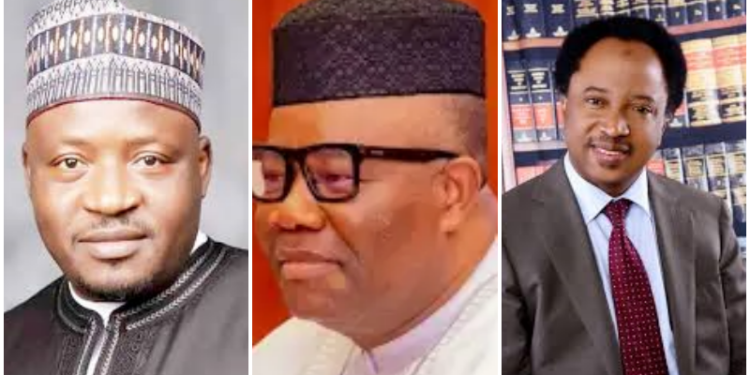

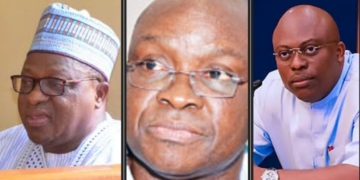

Discussion about this post